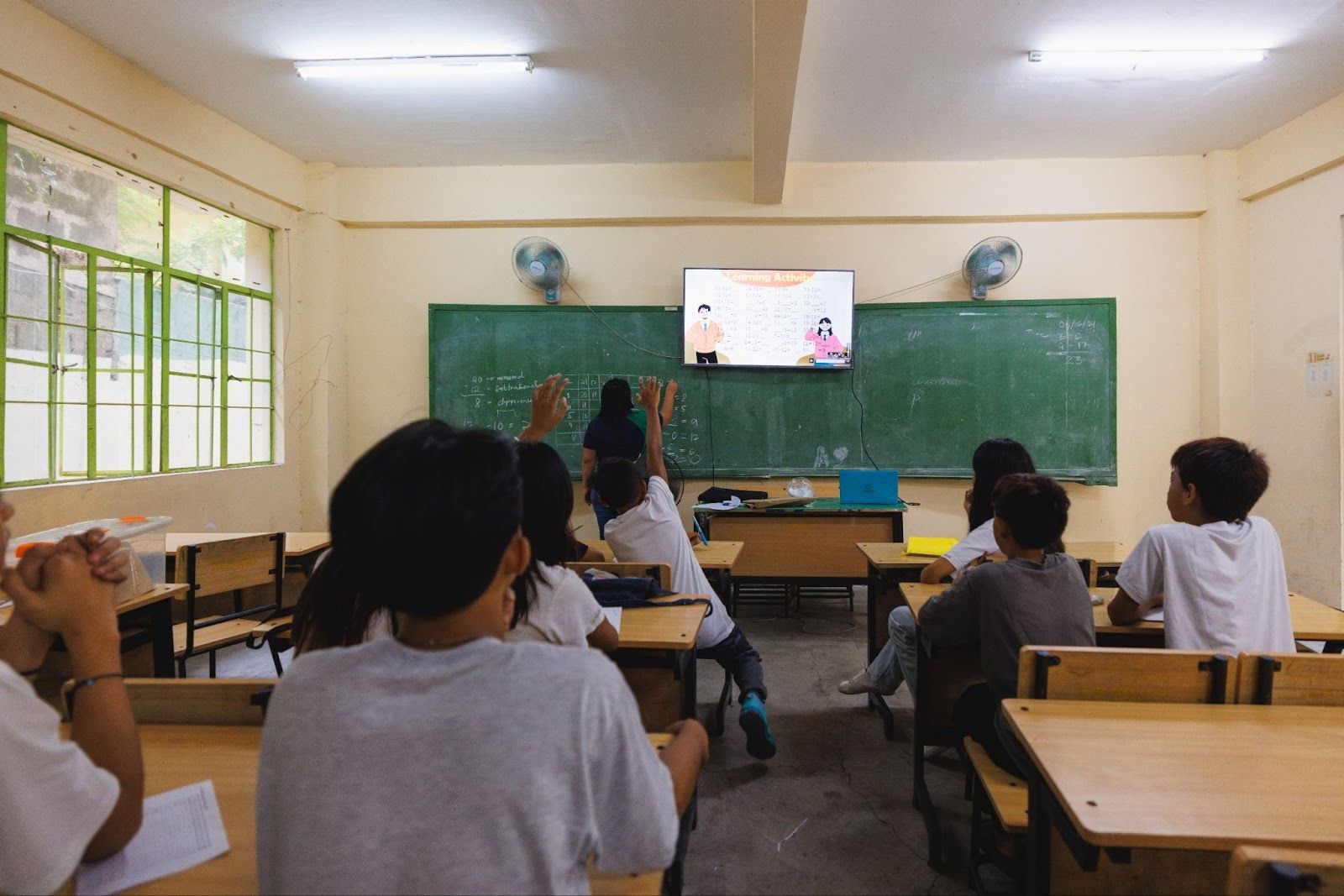Concerns raised over DepEd's National Learning Camp for 'failing to achieve' outcomes
Following the conclusion of this year's National Learning Camp (NLC) on Friday, July 19, the Second Congressional Commission on Education (EDCOM 2) raised concerns about the Department of Education's (DepEd) recovery program, citing that it has not met its intended goals.

The Commission voiced concerns about the implementation of DepEd’s NLC following a field visit to a public high school in Metro Manila.
EDCOM 2 is the Congressional body created through Republic Act 11899, tasked with undertaking a comprehensive national assessment and evaluation of the performance of the Philippine education sector.
Led by its Co-Chairpersons Senator Sherwin “Win” Gatchalian and Commissioner Rep. Jose Francisco “Kiko” Benitez, the Commission conducted a field visit at Tinajeros National High School to review the implementation of the learning camps.
“Maganda siya (it’s good), but it is not achieving what we want to achieve,” Gatchalian said.
“What we want to achieve is to eliminate—erase learning loss, whether due to the pandemic or other reasons,” he explained. “The main objective of the NLC should be to address those who are in need of interventions,” he added.
What is NLC?
Launched through DepEd Order No. 13, s. 2023, the NLC is one of the initiatives under the National Learning Recovery Program (NLRP).
READ:
https://mb.com.ph/2023/7/22/dep-ed-s-national-learning-camp-how-it-works-and-what-to-expect-2
In its second year of implementation, DepEd is conducting the NLC learning camps, which will run from July 1 to 19.
READ:
https://mb.com.ph/2024/6/15/dep-ed-to-hold-a-three-week-national-learning-camp-this-year
According to DepEd, the camps cover Grades 1 to 3 and Grades 7 to 10 and are structured into three groups to address learners' needs: intervention (for those who failed in English, Science, and Math), consolidation (for review and reinforcement), and enhancement (for advanced learners).
DepEd has also engaged learning camp volunteers to support teachers during these sessions.
The observation
EDCOM 2 Standing Committee Members Jennie Jocson and Elvin Uy, DepEd Director Marilyn Siao, and representatives from DepEd bureaus and offices observed the actual conduct of intervention and consolidation classes under the learning camp at Tinajeros.
Based on the initial observation, EDCOM 2 noted that while the teachers at Tinajeros were able to conduct NLC national assessments to screen learners participating in the learning recovery programs, only the results for Grades 7 and 8 were available in time to inform the targeting of learners. Results for Grades 9 and 10 arrived late.
This prompted the Commission to inquire whether assessments could be handled at the school level so that teachers could receive assessment results immediately.
“Despite the claims of addressing learning loss recovery, there has been no clear evidence of improvement in educational outcomes,” EDCOM 2 said. “Moreover, not all programs under the DepEd Order are being implemented,” it added.
EDCOM 2 pointed out that during the site visits, students attending the intervention camp “were not only catching up for proficiencies at their current grade level but were also lacking proficiencies from earlier grade levels.”
“The principle might be finding ways to teach them [learners] at the right level; to teach them where they are so we can help them move to the next stage in the fastest, most efficient, and strategic ways we possibly can,” said EDCOM 2 Commissioner Rep. Kiko Benitez.
This, he added, is “not an easy thing to design.”
Benitez noted that while the NLC is “probably one way” to address learning gaps, “it cannot be the only way because two weeks does not solve six years of loss.”
Recognizing this, Benitez urged DepEd to ensure that interventions are done “every day, during the school days.”
Improvements needed
Seeing the gaps in the implementation of the NLC, the Commission underscored the urgent need for improvements—specifically targeting the learners and making remediation mandatory.
“Kasi ang resources natin konti lang e, so dapat i-target muna natin ang mga estudyanteng nangangailangan (Since our resources are limited, we should first target the students who are in need),” Gatchalian said.
EDCOM 2 stressed the importance of making remediation mandatory, in addition to introducing other supportive measures, for students who are not prepared to move to the next grade level or who are significantly behind.
Citing previous consultations of EDCOM 2, Executive Director Karol Mark Yee said that because participation is voluntary, “some learners who were supposed to be in intervention camps do not participate.” He added that this is “just among the other factors why learning camps are not as effective.”
For Gatchalian, participation in the NLC should be made mandatory.
“Itong learning camp, hindi siya mandatory e, voluntary siya. In my opinion, nasa crisis na tayo. Kailangan nating gawing mandatory para makahabol lahat ng mga estudyante (This learning camp is not mandatory; it is voluntary. In my opinion, we are in a crisis. We need to make it mandatory so that all students can catch up),” he added.
READ:
https://mb.com.ph/2023/5/29/ph-education-in-crisis-1
Meanwhile, the teachers at Tinajeros also expressed concerns about learning progress and agreed that remediation and learning camps should be made mandatory.
Support and empower teachers
Given the complexity of the problem and the learning crisis the country is experiencing, Benitez emphasized the importance of supporting and empowering teachers.
He highlighted the need to provide them with the necessary training and resources to effectively teach all students, particularly those who are falling behind.
“Our goal is to have empowered teachers,” Benitez said. “Confidence is a major piece that we need to provide, but at the end of the day, we need to keep our eye on the goal—competencies, learning outcomes, and skill sets ideally at the right grade level,” he added.
Moreover, EDCOM 2 stressed that the government must ensure that teachers are not only empowered and equipped through training in various interventions but are also supported with budgets, materials, and other resources.